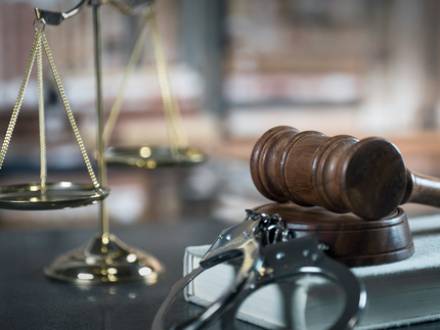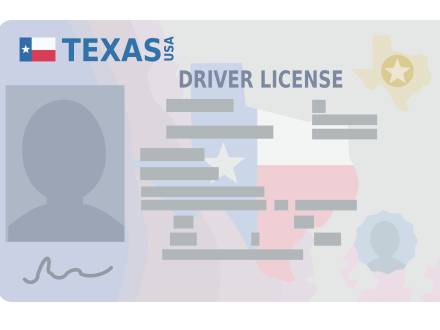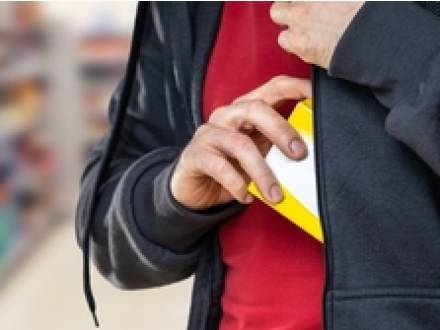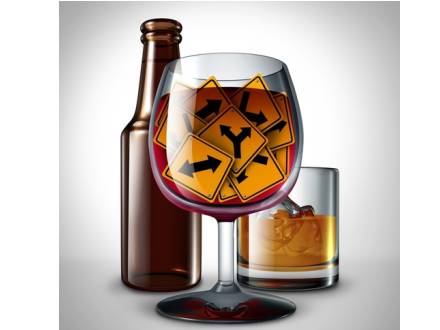Recent Blog Posts
Tarrant County Deferred Prosecution Program for First-Time Offenders
 The Tarrant County Deferred Prosecution Program (DPP) is a diversion program offered by the Tarrant County Criminal District Attorney’s Office for eligible first-time offenders who have been arrested in Tarrant County.
The Tarrant County Deferred Prosecution Program (DPP) is a diversion program offered by the Tarrant County Criminal District Attorney’s Office for eligible first-time offenders who have been arrested in Tarrant County.
This program allows people who qualify to avoid traditional prosecution by completing a short period of supervision and meeting specific program requirements set by the county.
What Are the Penalties for Credit or Debit Card Abuse in Texas?
 Texas Penal Code § 32.31, Credit Card or Debit Card Abuse, is a felony offense that is aggressively prosecuted in Tarrant County, Texas. These cases are considered serious financial crimes because they involve fraud, identity theft, and unauthorized access to another person’s financial information.
Texas Penal Code § 32.31, Credit Card or Debit Card Abuse, is a felony offense that is aggressively prosecuted in Tarrant County, Texas. These cases are considered serious financial crimes because they involve fraud, identity theft, and unauthorized access to another person’s financial information.
Under this law, you commit credit card or debit card abuse if you intentionally or knowingly use a credit or debit card without the effective consent of the cardholder. You also commit this crime if you:
-
Use a card that is stolen or forged
-
Possess card or account number information with intent to defraud
-
Receive benefits knowing the card was obtained unlawfully
Texas Drug Crime Laws: What to Know About Marijuana and THC Arrests
 Drug crime charges in Texas are serious and can carry long-lasting consequences. Whether the accusation involves marijuana, THC vape cartridges, or other controlled substances, a conviction can impact your freedom, employment, and future opportunities.
Drug crime charges in Texas are serious and can carry long-lasting consequences. Whether the accusation involves marijuana, THC vape cartridges, or other controlled substances, a conviction can impact your freedom, employment, and future opportunities.
If you or a loved one has been arrested for a drug offense, you need an Arlington, TX criminal defense lawyer. Understanding Texas drug crime laws, potential penalties, and your legal rights is the first step toward protecting yourself.
How Texas Drug Crime Laws and Arrests Work
Texas drug offenses are governed primarily by the Texas Controlled Substances Act. Charges depend on many factors, including:
-
The type of substance
Do I Need a Criminal Defense Lawyer in Tarrant County, Texas?
 If you have been arrested or are being investigated for a crime in 2026, you need a criminal defense lawyer. And not just any criminal defense lawyer – you need someone who has experience with Tarrant County’s courts, prosecutors, and criminal justice process. A criminal charge threatens your freedom, your job, and your future. The right defense strategy can make the difference between dismissal, reduced charges, or a conviction.
If you have been arrested or are being investigated for a crime in 2026, you need a criminal defense lawyer. And not just any criminal defense lawyer – you need someone who has experience with Tarrant County’s courts, prosecutors, and criminal justice process. A criminal charge threatens your freedom, your job, and your future. The right defense strategy can make the difference between dismissal, reduced charges, or a conviction.
Attorney Craig Dameron at The Dameron Law Firm represents people facing felony and misdemeanor charges. We work throughout Tarrant County, including Fort Worth and surrounding communities. Our Texas criminal defense lawyer will give you a smart, aggressive defense from the moment of arrest through to the end of your case.
The Kinds of Criminal Charges The Dameron Law Firm Defends in Tarrant County
The Dameron Law Firm handles a wide range of criminal defense matters in Tarrant County courts, including:
Criminal Defense Attorney Craig Dameron Nominated as a 2025 Top Attorney by Fort Worth Magazine
 The Dameron Law Firm is pleased to announce that Attorney Craig Dameron has been nominated as a Top Attorney in the 2025 Fort Worth Magazine rankings, an annual recognition highlighting the region’s most respected legal professionals. This nomination reflects Craig Dameron’s longstanding commitment to exceptional legal representation and his respected standing within the Fort Worth legal community.
The Dameron Law Firm is pleased to announce that Attorney Craig Dameron has been nominated as a Top Attorney in the 2025 Fort Worth Magazine rankings, an annual recognition highlighting the region’s most respected legal professionals. This nomination reflects Craig Dameron’s longstanding commitment to exceptional legal representation and his respected standing within the Fort Worth legal community.
With more than two decades of experience defending individuals throughout Tarrant County, Craig Dameron has built a reputation for dependable, results-driven criminal defense. His nomination acknowledges his extensive experience in criminal law and the trust he has earned from both clients and peers.
Misdemeanor Theft & Shoplifting Charges in Tarrant County
 Facing a shoplifting or misdemeanor theft charge in Tarrant County is scary, especially if this is your first interaction with the police. Local prosecutors take retail theft cases seriously, and even a low-level accusation can create long-term consequences.
Facing a shoplifting or misdemeanor theft charge in Tarrant County is scary, especially if this is your first interaction with the police. Local prosecutors take retail theft cases seriously, and even a low-level accusation can create long-term consequences.
At The Dameron Law Firm, we work every day to protect the records and futures of clients charged with theft offenses in Tarrant County criminal courts. Call our Arlington, TX criminal defense attorney now.
What Counts as Misdemeanor Theft in Tarrant County?
Tarrant County prosecutions follow Texas Penal Code §31.03, which defines theft as unlawfully taking property with the intent to deprive the owner of it. In retail settings, this includes walking out with unpaid items, hiding merchandise, or switching price tags.
What Is an Occupational Driver’s License in Texas? Understanding ODLs With and Without Ignition Interlock Requirements
 If your Texas driver’s license has been suspended, you may be asking the same question many drivers face: How can I legally drive to work, school, or take care of basic needs while my license is suspended? Under Subchapter L of the Texas Transportation Code, Texas law provides a solution called an occupational driver’s license (ODL). This restricted license allows eligible drivers to operate a motor vehicle for essential needs during a period of suspension.
If your Texas driver’s license has been suspended, you may be asking the same question many drivers face: How can I legally drive to work, school, or take care of basic needs while my license is suspended? Under Subchapter L of the Texas Transportation Code, Texas law provides a solution called an occupational driver’s license (ODL). This restricted license allows eligible drivers to operate a motor vehicle for essential needs during a period of suspension.
Call our Tarrant County, TX occupational driver’s license attorney for help applying for driving privileges on a suspended license in 2025.
What Counts as an Essential Need for an Occupational Driver’s License?
Texas Transportation Code Section 521.241 defines "essential need" as the ability to drive for job duties, transportation to and from work, travel to an educational facility, and essential household activities.
Arrested for Marijuana and THC Possession? Here Are the Penalties You Face in Tarrant County, TX
 Despite legalization in many states, possession of marijuana or THC remains a criminal offense in Texas. Even having a small amount of pot or pot products can lead to arrest. THC products such as edibles, oils, or vape cartridges can result in felony charges.
Despite legalization in many states, possession of marijuana or THC remains a criminal offense in Texas. Even having a small amount of pot or pot products can lead to arrest. THC products such as edibles, oils, or vape cartridges can result in felony charges.
If you are facing marijuana or THC-related charges, you need to take them seriously. A conviction can lead to jail time, fines, and a permanent criminal record. An experienced Arlington, Texas drug crimes defense lawyer can help you understand the charges against you and fight for the best possible outcome.
What Is the Difference Between Marijuana and THC Under Texas Law?
Texas law makes a clear distinction between marijuana and THC concentrates. Marijuana refers to the plant material itself, like the bud, leaves, and stems. THC is the psychoactive compound found in marijuana.. When it is extracted and concentrated in products like edibles and vape oils, it is treated more harshly under Texas state law.
Texas’s September 1, 2025 Overhaul of Organized Retail Theft
 On September 1, 2025, Senate Bill 1300 (SB 1300) reshaped how Texas charges and punishes organized retail theft. With this law, more actions are included under the definition of the charges, penalties are more severe, and there are additional pleading and evidence rules that make these cases easier for the State to bring and harder for defendents to fight. If you are arrested or under investigationfor organized retail theft, understanding how this differs from ordinary theft is critical. A Fort Forth, TX criminal defense lawyer can explain your options.
On September 1, 2025, Senate Bill 1300 (SB 1300) reshaped how Texas charges and punishes organized retail theft. With this law, more actions are included under the definition of the charges, penalties are more severe, and there are additional pleading and evidence rules that make these cases easier for the State to bring and harder for defendents to fight. If you are arrested or under investigationfor organized retail theft, understanding how this differs from ordinary theft is critical. A Fort Forth, TX criminal defense lawyer can explain your options.
What Changed Under SB 1300?
-
Indictments: Prosecutors no longer have to list each stolen item. Under CCP Art. 21.155, it is enough to name the merchant and an estimation of the total value that was stolen.
What First-Time DWI Defendants Need to Know About Field Sobriety Testing in Texas
 If you are stopped on suspicion of driving while intoxicated anywhere in Tarrant County, the officer may ask you to take field sobriety tests. These roadside tests are designed to measure balance, coordination, concentration, and divided attention, but they are not always reliable.
If you are stopped on suspicion of driving while intoxicated anywhere in Tarrant County, the officer may ask you to take field sobriety tests. These roadside tests are designed to measure balance, coordination, concentration, and divided attention, but they are not always reliable.
For someone facing a first-time DWI charge, the results of these tests can have a major impact on how a case turns out. Understanding how field sobriety testing works, can help you make informed decisions about your defense. Our Arlington, TX DWI defense attorney is here to help with your case, from start to finish.
What Are Field Sobriety Tests?
Field sobriety tests are standardized evaluations developed by the National Highway Traffic Safety Administration (NHTSA) to help officers determine whether a driver may be impaired. The three standardized tests are described in detail in the NHTSA Field Sobriety Testing Manual.

 817-222-0624
817-222-0624







